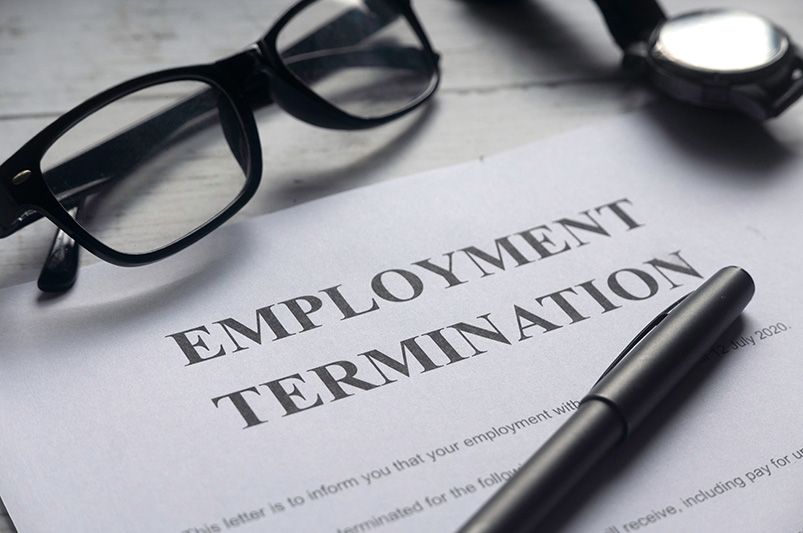California “At-Will” Has Limits: 9 Exceptions Every Fired Worker Should Know
Published: 18/09/2025 | Updated: 18/09/2025
California is an at-will employment state, meaning an employer can terminate an employee at any time, for almost any reason—or for no reason at all. But here’s the catch: “at-will” has limits.
Employers cannot fire workers for unlawful reasons, and California law recognizes several important exceptions that protect employees from wrongful termination. If you’ve been fired and think something feels unfair, knowing these exceptions could make all the difference in whether you have a case.
The 9 Major Exceptions to At-Will Employment in California
1. Discrimination (FEHA & Federal Protections)
You cannot be fired based on race, religion, gender, sexual orientation, age (40+), disability, or other protected classes under California’s Fair Employment and Housing Act (FEHA) and federal laws.
Example: If you’re let go shortly after disclosing a disability or pregnancy, you may have grounds for wrongful termination.
2. Retaliation for Whistleblowing
California law protects employees who report unlawful activities, safety violations, or fraud. If you’re fired for reporting misconduct—whether internally or to a government agency—that firing may be retaliatory and unlawful.
3. Public Policy Violations
Employers cannot fire you for reasons that violate established public policy, such as refusing to break the law, serving on a jury, or taking time off to vote.
4. Implied Contracts
Even without a written contract, an implied promise of job security can override at-will employment. Courts consider employer statements, company policies, and past practices.
Example: If your employer consistently assures you of job stability as long as performance is satisfactory, an implied contract may exist.
5. Covenant of Good Faith and Fair Dealing
California courts recognize that employers cannot terminate employees in bad faith, such as firing someone right before a large commission or retirement benefit is due.
6. Retaliation for Exercising Workplace Rights
Employees are legally protected when asserting their rights under wage and hour laws, sick leave, or family leave (FMLA/CFRA). Retaliation for asserting these rights is a wrongful termination exception.
7. Union Activity & Collective Bargaining Rights
Under the National Labor Relations Act, employees have the right to organize, join unions, or engage in collective bargaining without fear of termination.
8. Contractual Agreements
If you have a written employment contract, your employer must honor its terms. Termination outside the scope of that contract can give rise to a wrongful termination claim.
9. Protected Leaves of Absence
California and federal law protect employees taking family, medical, or pregnancy leave. Termination tied to lawful leave often qualifies as wrongful termination.

Why These Exceptions Matter
Understanding the limits of at-will employment empowers workers to recognize when a firing is not just unfair—but unlawful. Many employees assume “there’s nothing they can do” when they’re fired, but California law offers significant protections.
If you were terminated under suspicious circumstances, consulting a wrongful termination lawyer can help determine whether one of these exceptions applies.
What to Do If You Believe You’ve Been Wrongfully Terminated
-
Document Everything – Save emails, texts, performance reviews, and termination letters.
-
Request Reasons in Writing – Politely ask your employer for the stated reason behind your termination.
-
Preserve Evidence – Don’t delete files, and keep records of hours worked, pay stubs, or complaints made.
-
Consult an Employment Attorney – Get professional advice before signing severance agreements or waivers.
Take Action After a Firing
Being let go is stressful, and it’s easy to overlook critical steps that could protect your rights. That’s why we created a simple, lawyer-approved checklist to guide you through what to save, deadlines to track, and the next steps you should take.
Download your free Termination Response Checklist below and get clarity on your next move.
JusticeGuys Is Here to Help
At JusticeGuys, we connect Californians with the right employment lawyer for their situation. If you suspect your termination falls under one of these exceptions, you don’t have to navigate it alone.
Contact JusticeGuys today to find a lawyer who can protect your rights.
FAQs
Q1: What does “at-will” employment mean in California?
A1: It means employers can terminate employees at any time, for any reason or no reason, unless it violates an exception under California law.
Q2: What are the main exceptions to at-will employment?
A2: Discrimination, retaliation, public policy violations, implied contracts, good faith covenant violations, protected leave, and more.
Q3: Can an employer fire me for reporting unsafe working conditions?
A3: No. Termination for whistleblowing or reporting violations is illegal retaliation.
Q4: Does an implied contract really hold up in court?
A4: Yes. Courts may find an implied contract based on employer promises, policies, or practices.
Q5: What should I do if I think I’ve been wrongfully terminated?
A5: Preserve evidence, avoid signing documents without legal review, and consult with an employment lawyer.